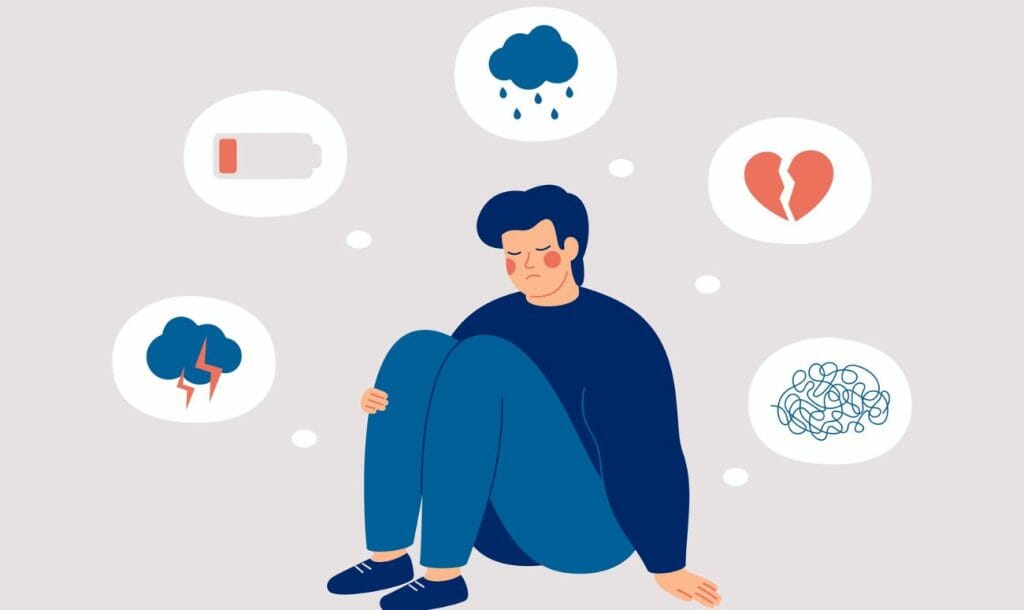Mental health disorders are very common in the world with India having one of the highest prevalence of mental illnesses. While the subject is still largely taboo in India, National Health Survey 2016 found that close to 14% of India’s population required active mental health intervention. One in every seven Indians suffers from depressive or anxiety disorder. The numbers have probably doubled today.
One of the most common issues faced by many is that families and friends of people who suffer from psychological problems don’t realize that their loved ones are going through a crisis. A mental health crisis isn’t something people typically prepare for, and most can miss the signs.
Let’s Understand What A Mental Health Crisis Is
A mental health crisis is when someone’s behaviours prevent them from functioning or indicate they might hurt themselves or others. A crisis can feel very overwhelming, and it might seem as if the coping skills aren’t of any use anymore. One can head into a mental health crisis due to triggers like stress at home like conflicts or fights, exposure to trauma or violence, stress at work or school, and other environmental stress. Those diagnosed with psychological illness are at a greater risk of experiencing a mental health crisis but too often a crisis happens before the illness has been diagnosed.
Whether you call it a “mental health emergency,” “crisis,” or “mental breakdown,” those experiencing these situations need immediate support.
Must-Read: Things To Keep In Mind When Looking For A Therapist

What Are The Signs Of A Mental Health Crisis?
The reasons for your mental health crisis are unique to you, just like your mental health is. Your crisis may look different than another’s but some signs that are prevalent include:
- Being unable to function; perform tasks like getting out of bed, going to work, or doing daily tasks
- Having challenges or an inability to take care of your hygiene
- Intense or sudden changes in mood
- Irregular sleeping or eating patterns
- Psychosis such as hallucinations or delusions
- Paranoia
- Withdrawing from friends, family and typical social situations
- Feeling increasingly agitated, angry, or violent
- Suicidal thoughts or making plans to commit
- Harming yourself or self-medicating
- Isolating or withdrawing from others
During a crisis, the signs and behavioural changes are severe. If you already have a mental health condition, the solution is to find what is ‘normal’ for you so that you can differentiate it from a crisis.
What Happens During A Mental Crisis?
If you’re having a psychological crisis, you may feel like you’re losing control of yourself. Some event in your life could be causing you immense stress, leading to symptoms such as fear, anxiety, worry, nervousness, and depression. You may feel “stuck”, overwhelmed, or incapacitated, which may make it difficult to cope or function with life.
Being prepared in advance for a mental health crisis and sharing that plan with your loved one can help avoid said crisis. When you feel like you’re going into a crisis, you’ll need to decide who will be your emergency call.
Let’s take a look at a few things you can gather to create a mental health crisis plan:
- Know where to go for help. You can reach out to community mental health centers, or psychiatric treatment facilities.
- Identify family members and friends who will be available for help in times of crisis.
- Compile the phone numbers and names of the person’s primary care doctor, psychiatrist, therapist, and other healthcare providers.
- Compile a list of emotional and verbal triggers that typically affect you or your loved one.
- Consider things that have helped stabilize and regulate you or the person in the past.
- Remove weapons, unprescribed medications, and items that can cause risk to life.
If you’re on the other side and suspect your loved one is going through a mental health crisis, reach out to them and lend them an ear. Sit down to talk in a supportive, non-judgmental manner. Always stay calm and listen instead of talking more. Your loved one needs someone to express their emotions. You need to be their safety outlet.
If the person suffering from the crisis is in immediate danger to themselves or someone else, do not hesitate to reach out for professional help. If the person is not in danger, you can reach out to their therapist or psychiatrist if they have one. They will be able to provide advice and help.
Sources:
https://www.thelancet.com/journals/lanpsy/article/PIIS2215-0366(19)30475-4/fulltext
Read More: 4 Ways Yoga Can Help You Build Back Strength
Like & Follow ThinkRight.me on Facebook, Instagram, Twitter, Pinterest and Telegram to stay connected.






























